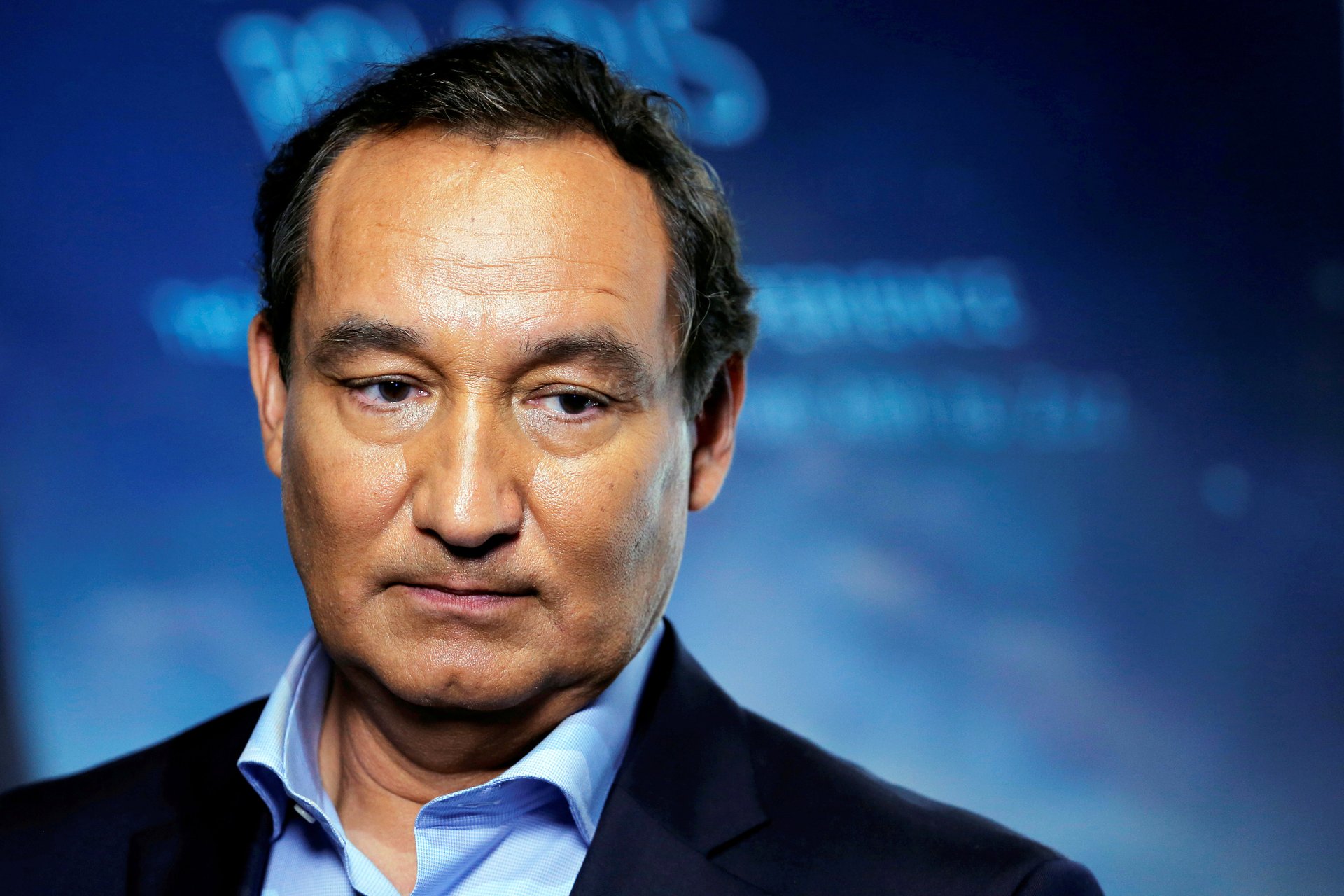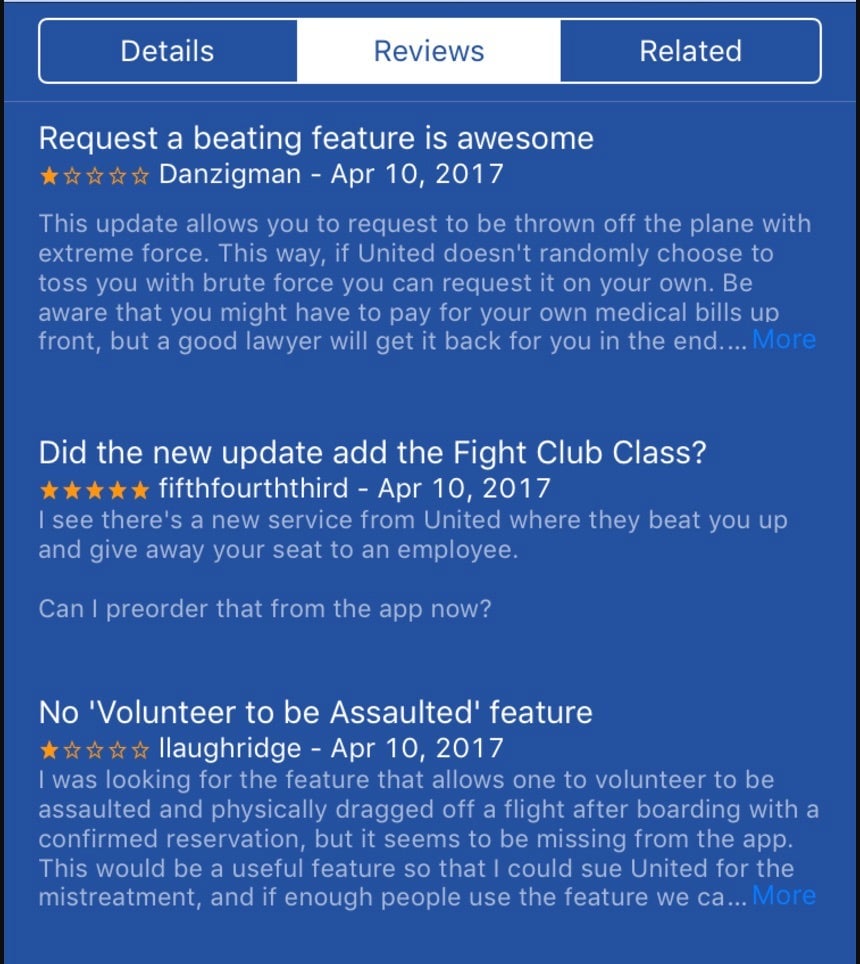United’s passenger-dragging scandal is a rallying cry for flyers fed up with an unjust system
It’s Day Two of “re-accommodation-gate,” and the world’s fury at United Airlines shows no signs of abating.


It’s Day Two of “re-accommodation-gate,” and the world’s fury at United Airlines shows no signs of abating.
The video of a man who refused to give up his seat on an overbooked United plane being violently removed by airport security has quickly gone from viral video to comedic meme. In China, where United has a major presence, social media users accused the airline of racism in its treatment of the Asian-American passenger. (He has since been identified as a Vietnamese-American doctor named David Dao.)
Some have posted photos of cut-up United credit cards. And check out the new reviews for the airline’s recently updated app:

But the debate about the incident has gone far beyond United’s culpability in Dao’s violent deplaning, and has many people taking a harsh look at the airline industry itself.
Unfriendly skies
The airlines’ increasingly callous attitudes toward their customers—especially the ones in coach—are a direct result of diminished competition in the United States.
The US is dominated by only four carriers—American, Delta, United, and Southwest control 80% of seats—and travelers have few competitive options for a given route. That means there’s little incentive to prioritize customer service, especially for the non-business travelers who only provide a fraction of the industry’s profits.
If you don’t like your locally dominant carrier, good luck with that—what are you going to do, flap your arms? Bloomberg’s Matt Levine paraphrased United’s ham-handed PR response as: “whatever, we are an airline, you will come crawling back.”
“Along with cable companies, airlines are the top-of-mind paragon for industries that seem to get worse for consumers as they become more heavily concentrated,” wrote the Atlantic’s Derek Thompson.
The law on their side
US aviation regulations also make it illegal to disobey a flight attendant—for any reason.
The law predates the 9/11 attacks: “No person may assault, threaten, intimidate, or interfere with a crewmember in the performance of the crewmember’s duties aboard an aircraft being operated.” A 2016 court ruling reaffirmed airlines’ right to “prohibit passengers from non-violently interfering with crewmember duties.”
If a flight attendant gives an order—”Sir, I need you to get off the plane”—and you say no, then you’ve interfered with with a crew member’s duties.
Violating the FAA regulation carries civil, not criminal penalties, but it’s what gave United the legal grounds to haul away David Dao.
Enforcing policy
The end result is an industry that can make cold-blooded financial decisions—such as selling the same seat twice—and then call in the police on its own paying customers, using physical violence if necessary.
“We have given airlines authority backed up with the tools of law enforcement to handle business matters with the subtlety of a bludgeon,” the frequent flyer blog One Mile at a Time pointed out.
United shares, after edging slightly higher on Monday, plunged more than 4% on Tuesday as investors began to digest the colossal public relations disaster—one that was foreseeable as the direct result of the industry’s maximum-efficiency, empathy-free business practices.